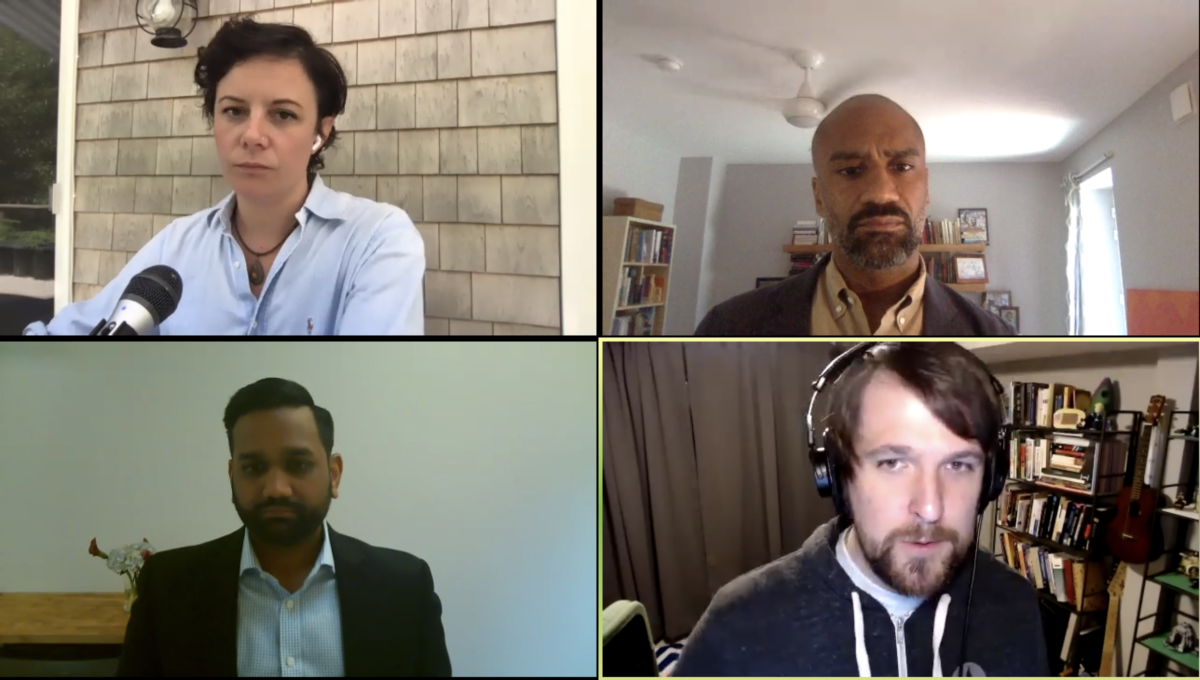Trump’s Section 230 Order is Direct Regulation of Speech Long Feared by GOP
June 23, 2020 — Section 230 of the Communications Decency Act has played an important role in the shifting center of power on the internet, but where that center of power should reside going forward is a hotly contested topic. “The story of whether 230 is deregulatory is … a complicated story, becau
Em McPhie

June 23, 2020 — Section 230 of the Communications Decency Act has played an important role in the shifting center of power on the internet, but where that center of power should reside going forward is a hotly contested topic.
“The story of whether 230 is deregulatory is … a complicated story, because it’s been invoked by the agency to do different things, pro-regulatory and less regulatory,” said Fordham University Law Professor Olivier Sylvain, speaking at a Tuesday panel hosted by Yale Law School.
Proponents of Section 230 often tell “the story that the internet has thrived in the absence of regulation and because of the absence of regulation,” Berkeley Law Professor Tejas Narechania said.
But statute has also been used by the Federal Communications Commission (under former chairman Kevin Martin) as a way to punish discriminatory behavior regarding net neutrality by Comcast.
Blake Reid, professor at the University of Colorado Law School, proposed looking at the agency’s approach to the internet by dividing it into different layers: the physical layer, the network layer, the application layer and the content layer.
“This is a question about where power is concentrated in the layer stack of the internet,” he said. “The conception that Section 230 had back in 1996 was really worried about internet service providers having a lot of power.”
In the years since, Reid said, the power has completely shifted to platforms such as Twitter and Facebook.
“There’s a way you can view 230 as intermediating the relationship between ISPs and platforms,” he said.
The Republican Trump administration is proposing ‘direct regulation of speech’ long feared from Democrats
Panelists also discussed President Donald Trump’s recent executive order attempting to curb Section 230 protections, which Narechania called “direct regulation of speech in a way that telecommunication regulation has tried to avoid for a very long time.”
“It’s lunacy to have the White House through an executive order make the Commerce Department through the NTIA make a recommendation to the FCC, an independent agency, to intervene in an area that most people think the FCC has not had historical authority over,” Sylvain said.
The FCC is not required to actually take any action based on the NTIA’s petition, he added.
“If you look at Republican Party orthodoxy in terms of the FCC regulating the internet, that was a fear of what the Democrats were going to do,” Reid said. “That was the worst nightmare of every Republican telecom consultant for 20 years, so to suddenly see a Republican president on the other side of it is just wild.”
Echos of net neutrality in the call for political nondiscrimination
Reid compared Trump’s call for political nondiscrimination mandates on platforms such as Twitter to the fight over net neutrality.
“If you’re accessing some particular kind of content — maybe you’re looking up websites that have a lot of political content that’s favorable to Republicans, but not Democrats — the ISP cannot block that,” he said. “We’ve had this very pitched battle for the better part of the last 20 years about whether the FCC has the authority to do that.”
While he disagreed with the interpretation that Section 230 is just a statutory implementation of what the First Amendment already requires, Reid emphasized the importance of examining the overlap between the constitutional amendment and the statute.
Getting rid of Section 230 might not have the catastrophic impact on content moderation that some have suggested, he said.
In that way, Section 230 “has stalled the development of First Amendment doctrine in this area,” he said.
Other efforts to curb or change Section 230 beyond Donald Trump
In addition to Trump’s executive order, there have been several other recent proposals to curtail Section 230’s reach, including new reform recommendations from the Justice Department and a bill introduced by Sen. Josh Hawley, R-Mo., who has long been one of the statute’s fiercest opponents.
“I don’t know what the world looks like if these policy interventions get any wind behind their sails,” Sylvain said. “I am skeptical about the Hawley bill, [but] there’s another one that will emerge very soon that is addressed more to the business model of these companies, and that’s something that I’m far more interested in seeing.”
Reid was dismissive about the realistic potential of such efforts.
“It’s really effective politics because it ties up the machinery of the bureaucracy in dealing with all of this nonsense, but it’s not designed to get passed, just like I think most of Hawley’s bills are not really designed to pass,” Reid said. “I think Hawley would be quite unhappy if suddenly the Democratic caucus came around and said, ‘Oh yes, we would love to pass this bill of yours.’”
However, Narechania expressed more concern about the future implications of the various proposals.
“I agree [the executive order] is political theater, but it seems like political theater that has the potential to make a whole lot of administrative law and telecommunications law,” he said. “And that makes me sort of nervous — it makes me really nervous.”









Member discussion